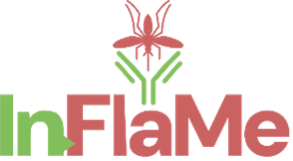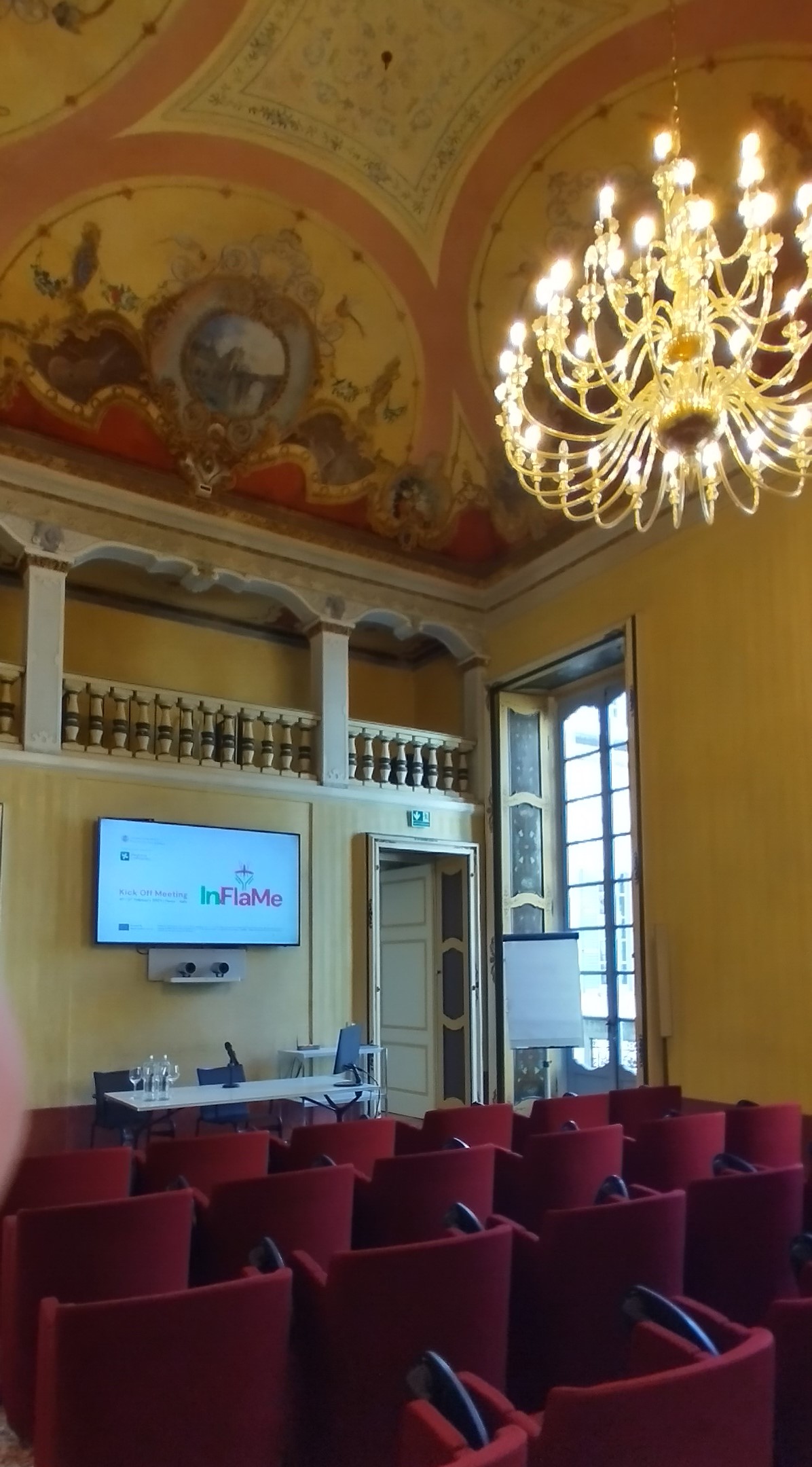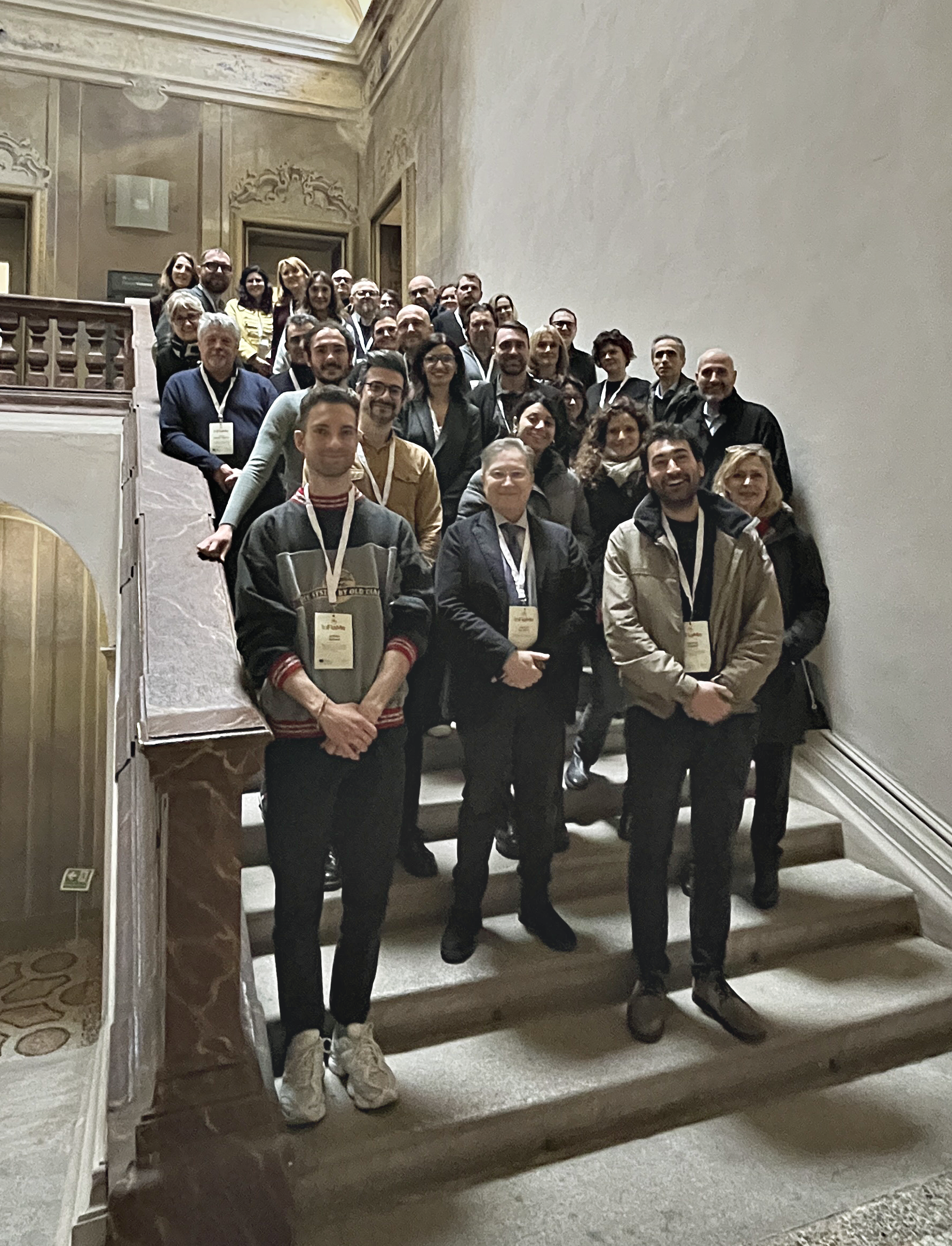InFlaMe (Counter-acting the pandemic potential of flaviviruses: addressing virus-host interactions and defense strategies to design new therapeutics against WNV and DENV), project number 101191725, is one out of 7 projects funded under the call topic ‘HORIZON-HLTH-2024-DISEASE-08-20 – Pandemic preparedness and response: Host-pathogen interactions of infectious diseases with epidemic potential’.
The project duration is 48 months, and it aims to strengthen the EU’s ability to fight Dengue virus (DENV) and West Nile Virus (WNV) epidemic and pandemic threats and develop effective emergency plans. The project is based on three pillars: 1) clinical investigation of host factors related to severe disease, 2) therapeutic development (i.e., host-viral protein binding inhibitors) and 3) One-Health-based surveillance of the infections.
The consortium, led by Professor Fausto Baldanti from the Fondazione IRCCS Policlinico San Matteo in Pavia, Italy, is composed of 11 beneficiaries from 5 countries, namely from Imagine Institut des Maladies Genetiques Necker Enfants Malades Fondation (France), Fondazione Istituto Nazionale di Genetica Molecolare INGM (Italy), Medizinische Universitaet Wien (Austria), Universita Degli Studi di Firenze (Italy), Institut Pasteur (France), Istituto Zooprofilattico Sperimentale della Lombardia e dell’Emilia Romagna Bruno Ubertini (Italy), Asociacion Centro De Investigacion Cooperativa En Biociencias (Spain), Consiglio Nazionale delle Ricerche (Italy), Masarykova Univerzita (Czechia), and Innovation Acta Srl (Italy).
The CNR participates with two Institutes: the “Luigi Cavalli Sforza” Institute of Molecular Genetics (IGM) and the Institute of Atmospheric Pollution Research (CNR-IIA).
In particular, the CNR-IIA coordinates the tasks that will deal with the development of data-driven methodologies for estimating the impact of climate change on the epidemic/pandemic risk from Flavivirus (Dengue, West Nile).
The partners have outstanding experience in all aspects of the project, collaborated previously and working together on emerging flaviviral infections.
The first in-person meeting of the consortium took place in Pavia, Italy, at the Palazzo Bellisomi-Vistarino between 4th and 5th of February 2025, with the participation of representatives from each beneficiary, the Project Officer from European Health and Digital Executive Agency (HaDEA) and members of the Advisory Board.
The 2-days meeting provided an excellent occasion for discussion, networking, and brainstorming. In his welcoming speech, the coordinator emphasized the consortium’s responsibility to deliver results, highlighting their significance for the future, especially in light of recent outbreaks. Professor Baldanti stressed that the work being done in InFlaMe is crucial for policymakers, particularly in relation to the One Health approach and the interaction between humans and animals.
The Project Officer presented an overview of the implementation aspects of Horizon Europe projects and during the ’roundtable of participants’ section, representatives from each beneficiary had the opportunity to introduce their teams, expertise, and roles within the project. During the meeting the project partners engaged in thorough discussions regarding the objectives and tasks detailed in the Grant Agreement for each work package and assessed potential risks along with strategies for mitigation.
 Funded by the European Union under Grant Agreement No. 101191725. Views and opinions expressed are however those of the author(s) only and do not necessarily reflect those of the European Union or the European Health and Digital Executive Agency (HaDEA). Neither the European Union nor the granting authority can be held responsible for them
Funded by the European Union under Grant Agreement No. 101191725. Views and opinions expressed are however those of the author(s) only and do not necessarily reflect those of the European Union or the European Health and Digital Executive Agency (HaDEA). Neither the European Union nor the granting authority can be held responsible for them



